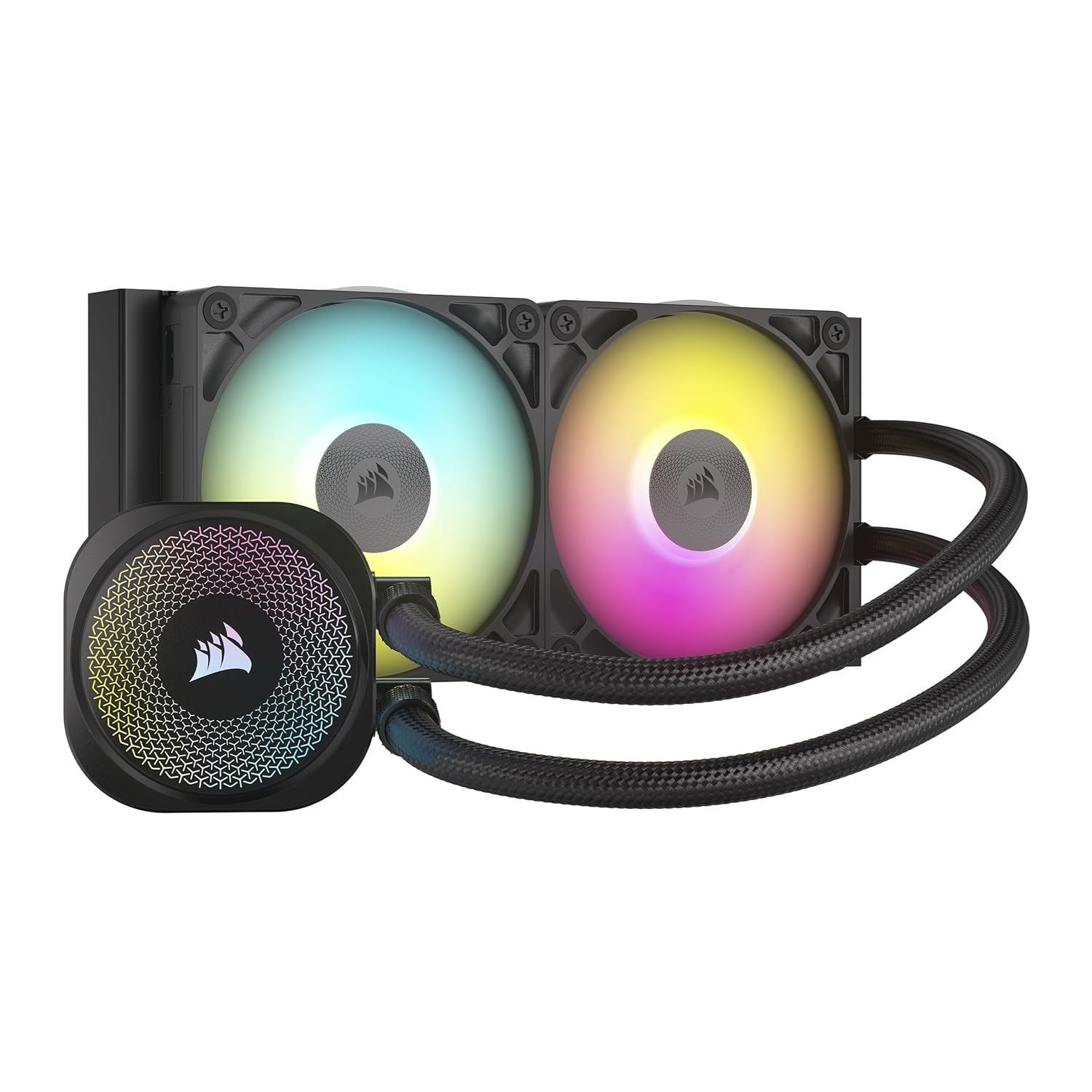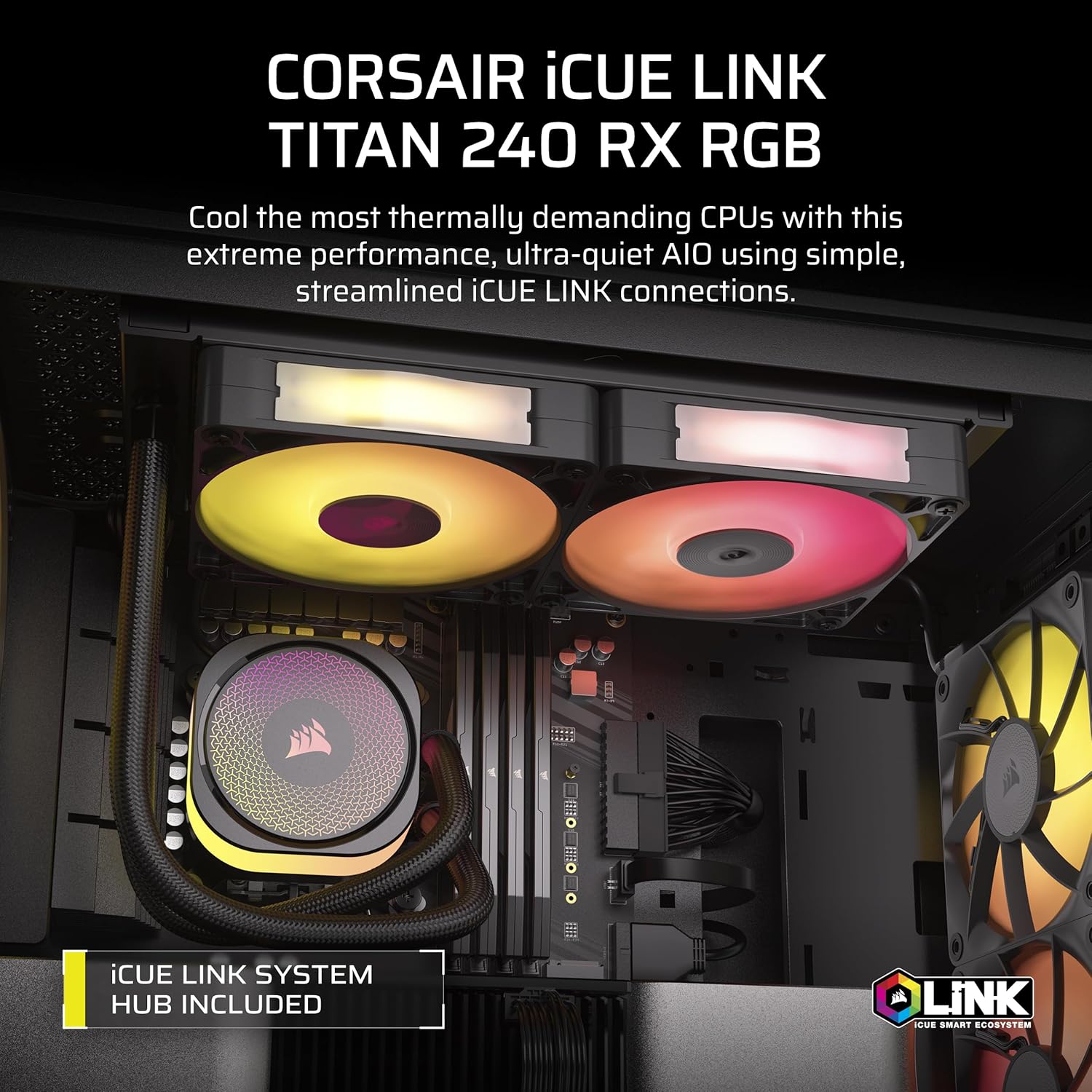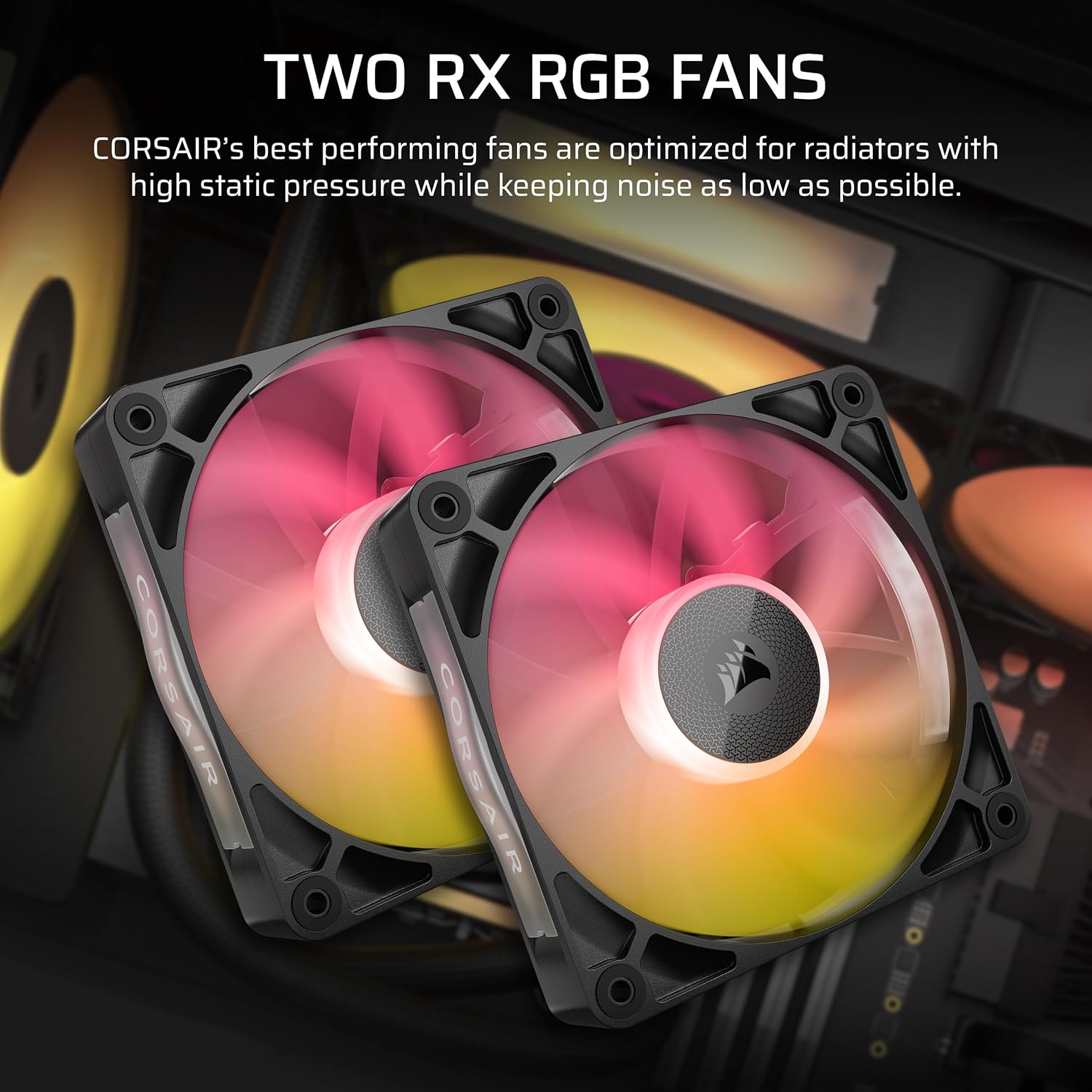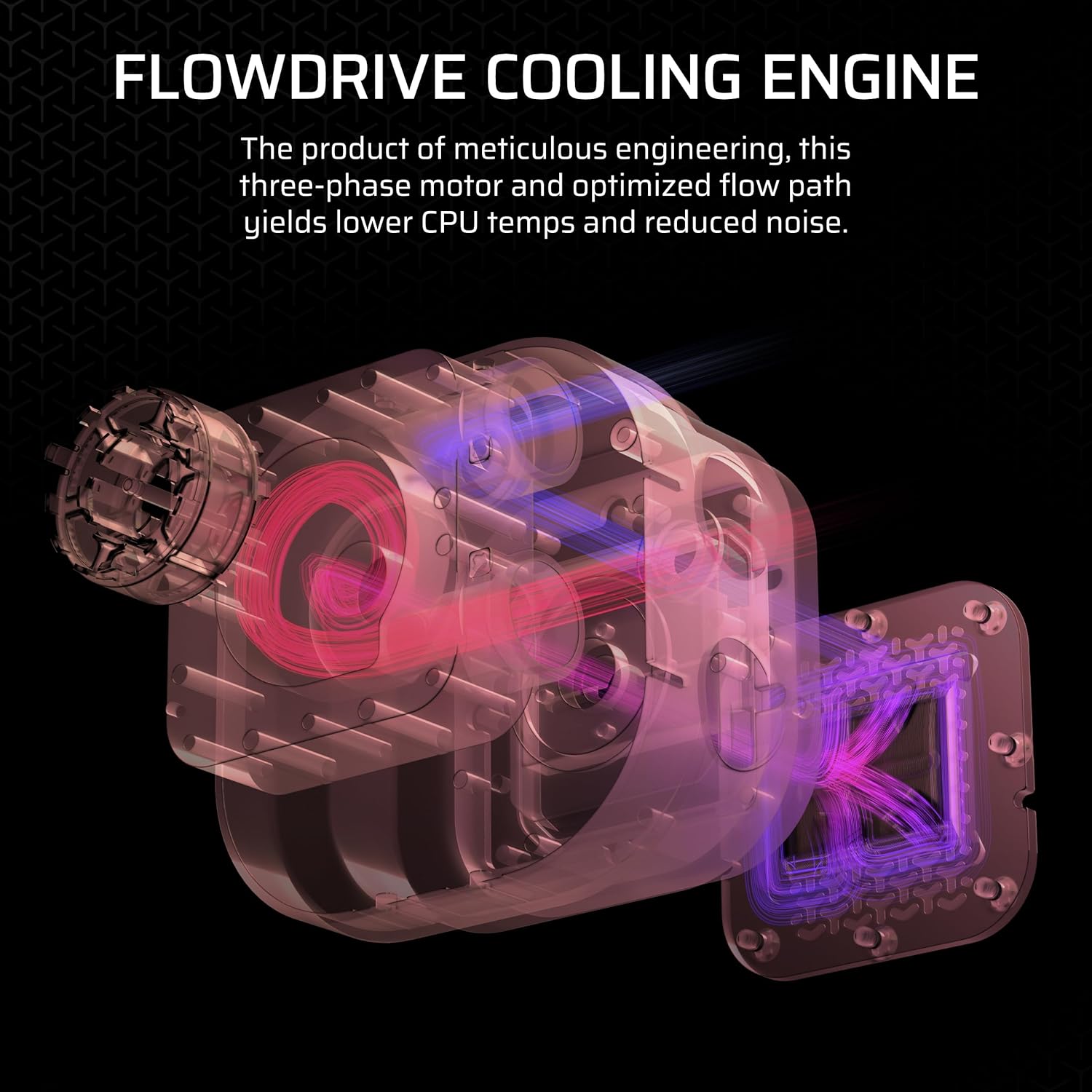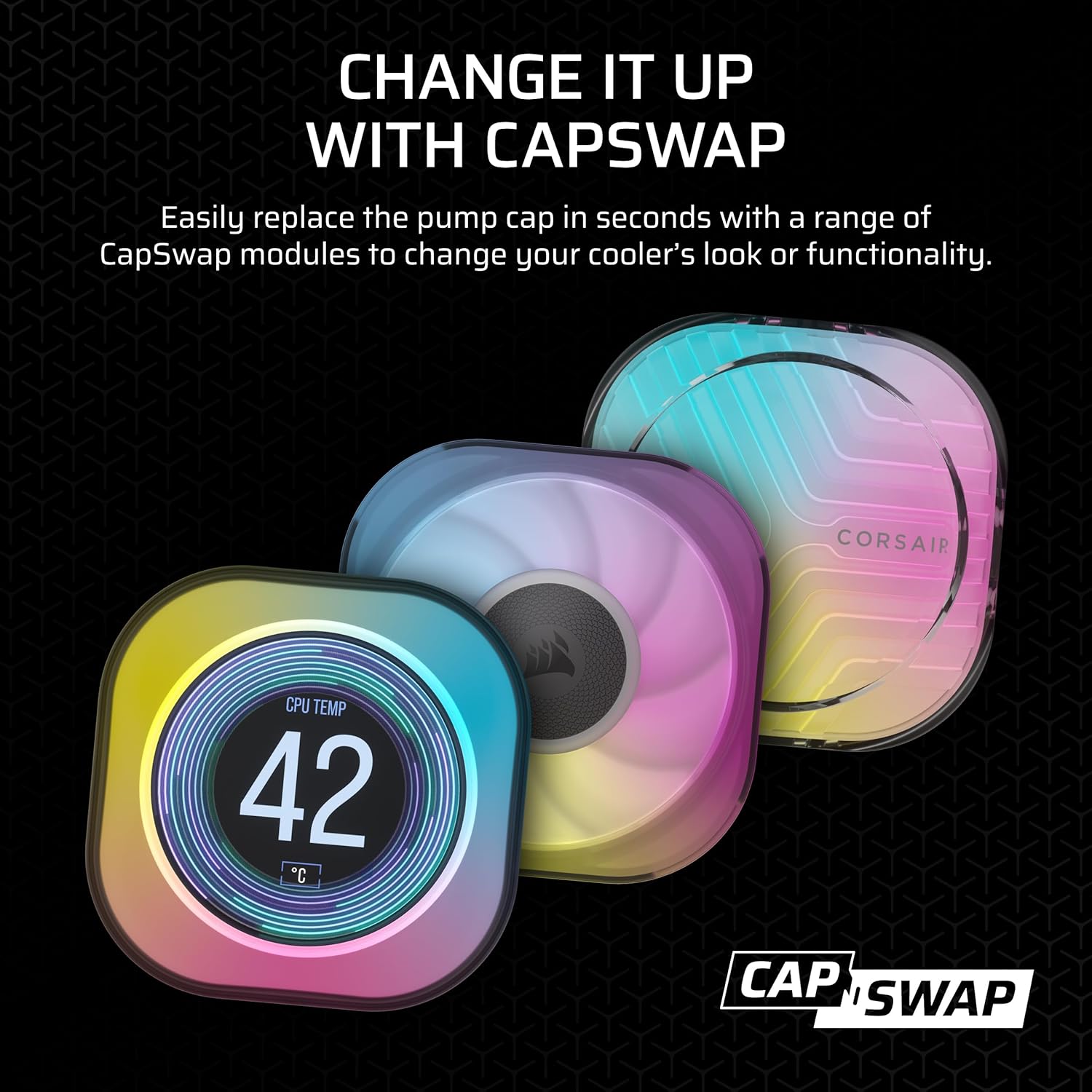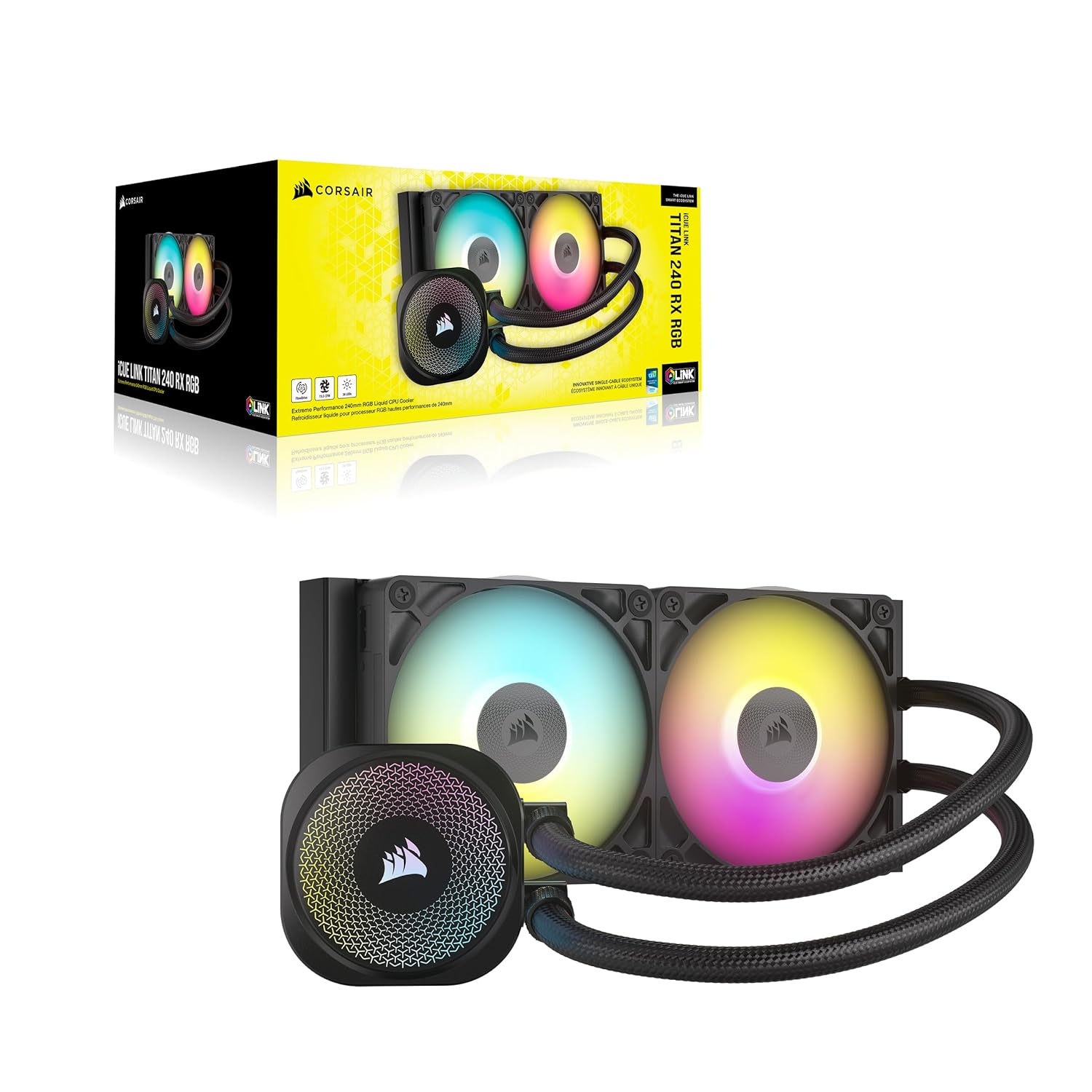CORSAIR iCUE LINK TITAN 240 RX RGB AIO, 240mm Radiator, Liquid CPU Cooler
CORSAIR iCUE LINK TITAN 240 RX RGB AIO, 240mm Radiator, Liquid CPU Cooler
Couldn't load pickup availability
The Smarter Cooler: CORSAIR iCUE LINK TITAN 240 RX RGB AIO
Step into the future of PC cooling with the CORSAIR iCUE LINK TITAN 240 RX. This isn't just a powerful AIO; it's a part of the revolutionary iCUE LINK ecosystem, which uses a single cable to connect all your components. Say goodbye to messy wires and hello to a clean, simple build. With its vibrant RGB lighting, strong cooling performance, and effortless installation, the TITAN 240 RX makes building a high-end PC easier and more beautiful than ever.
⭐ Highlights
⭐ Highlights
iCUE LINK Single-Cable Ecosystem | CORSAIR FlowDrive High-Flow Pump | CapSwap Modular Pump Design | Extreme Performance XTM70 Thermal Paste | RX120 RGB Fans with Magnetic Bearings
⚙️ Specifications
⚙️ Specifications
Cooler Type: Liquid Cooler (AIO)
Socket Compatibility: Intel LGA 1700 / 1200 / 115X, AMD AM5 / AM4
TDP Rating: Not officially rated, designed for high-end CPUs.
Fan Size: 2 x 120mm
Noise Level: Up to 36 dBA
RGB Lighting: Addressable RGB (A-RGB)
For AIO Liquid Coolers Only
Radiator Size: 240mm
Radiator Thickness: 27 mm
Tube Length: 400 mm
For Air Coolers Only
Cooler Dimensions:
Heatsink Material:
Share
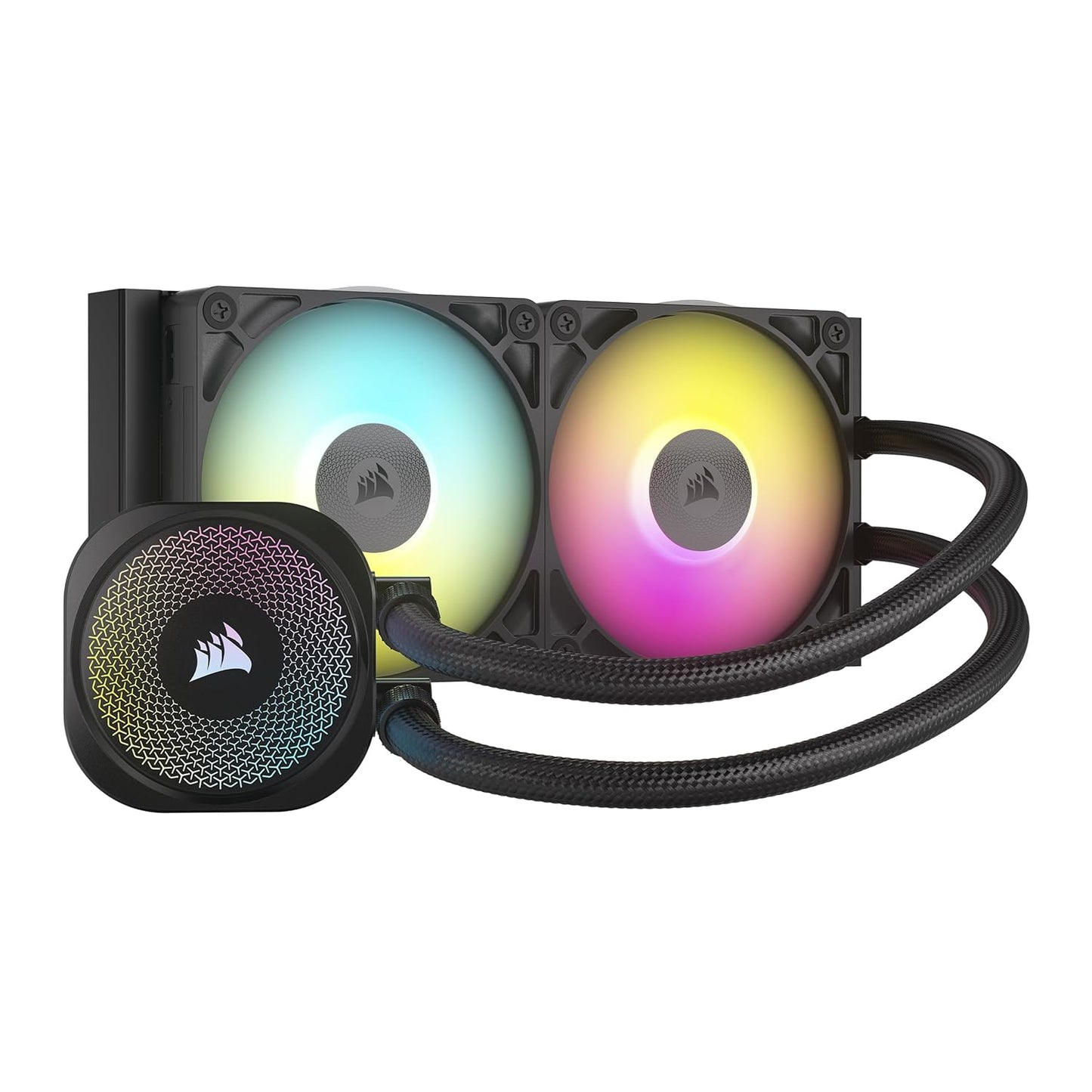
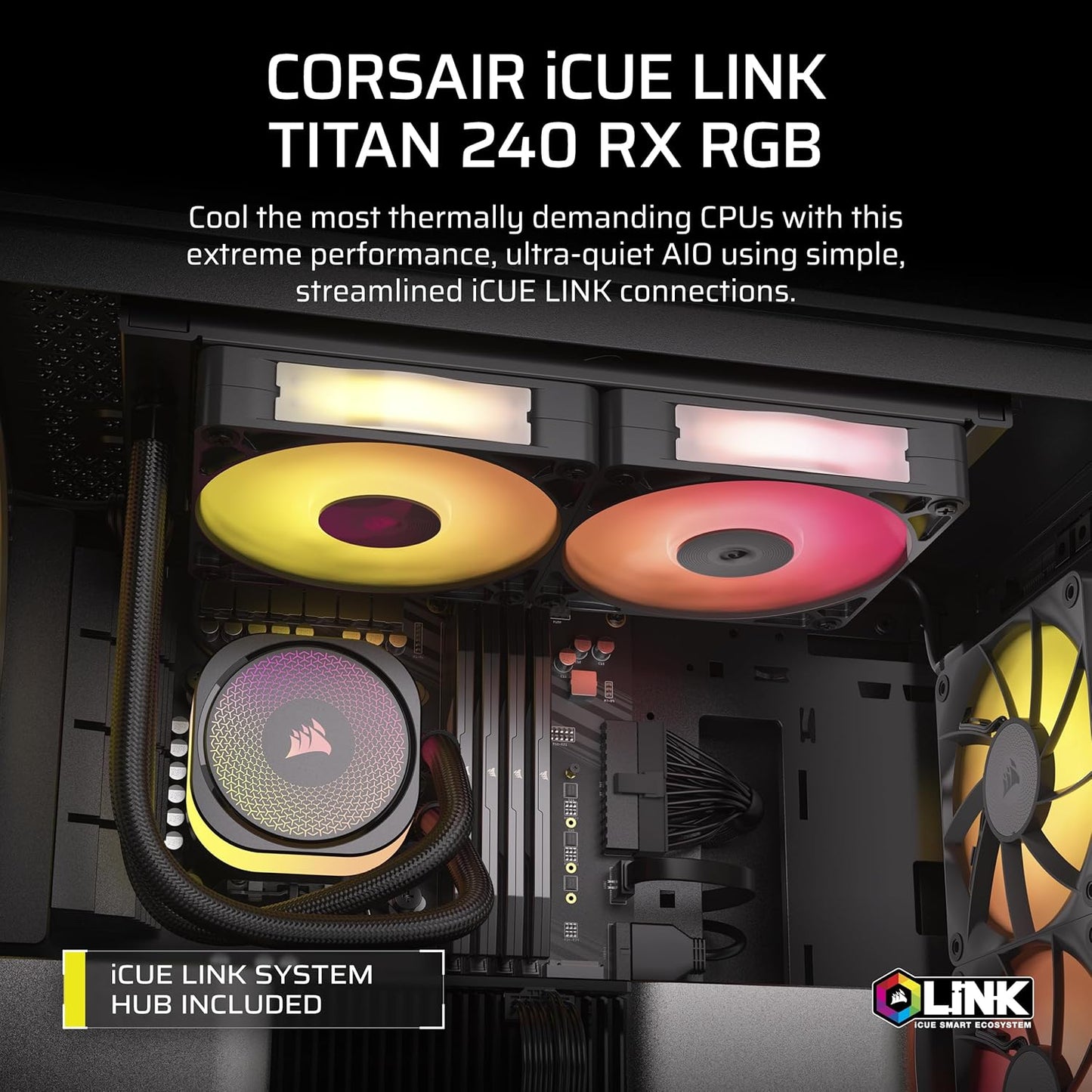
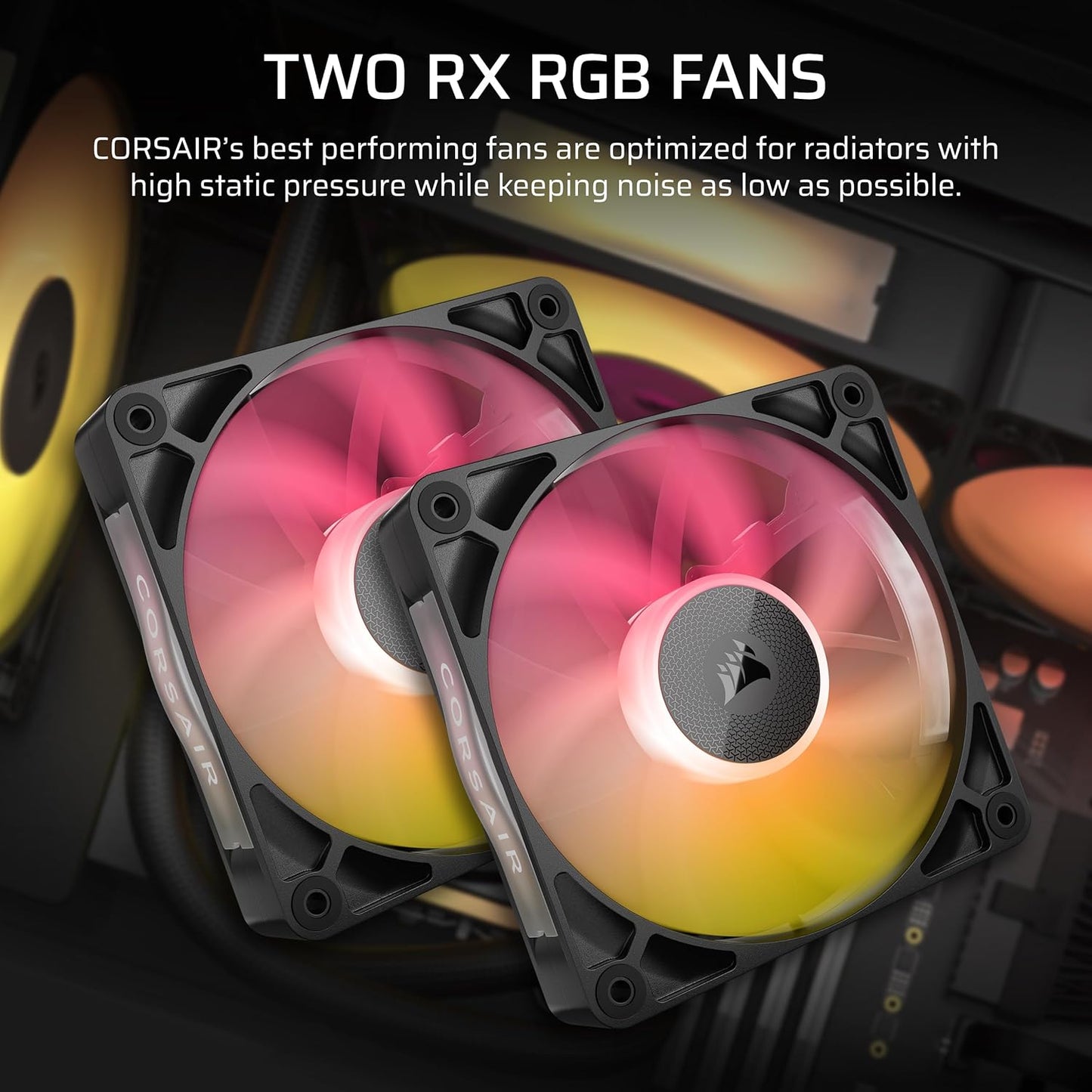
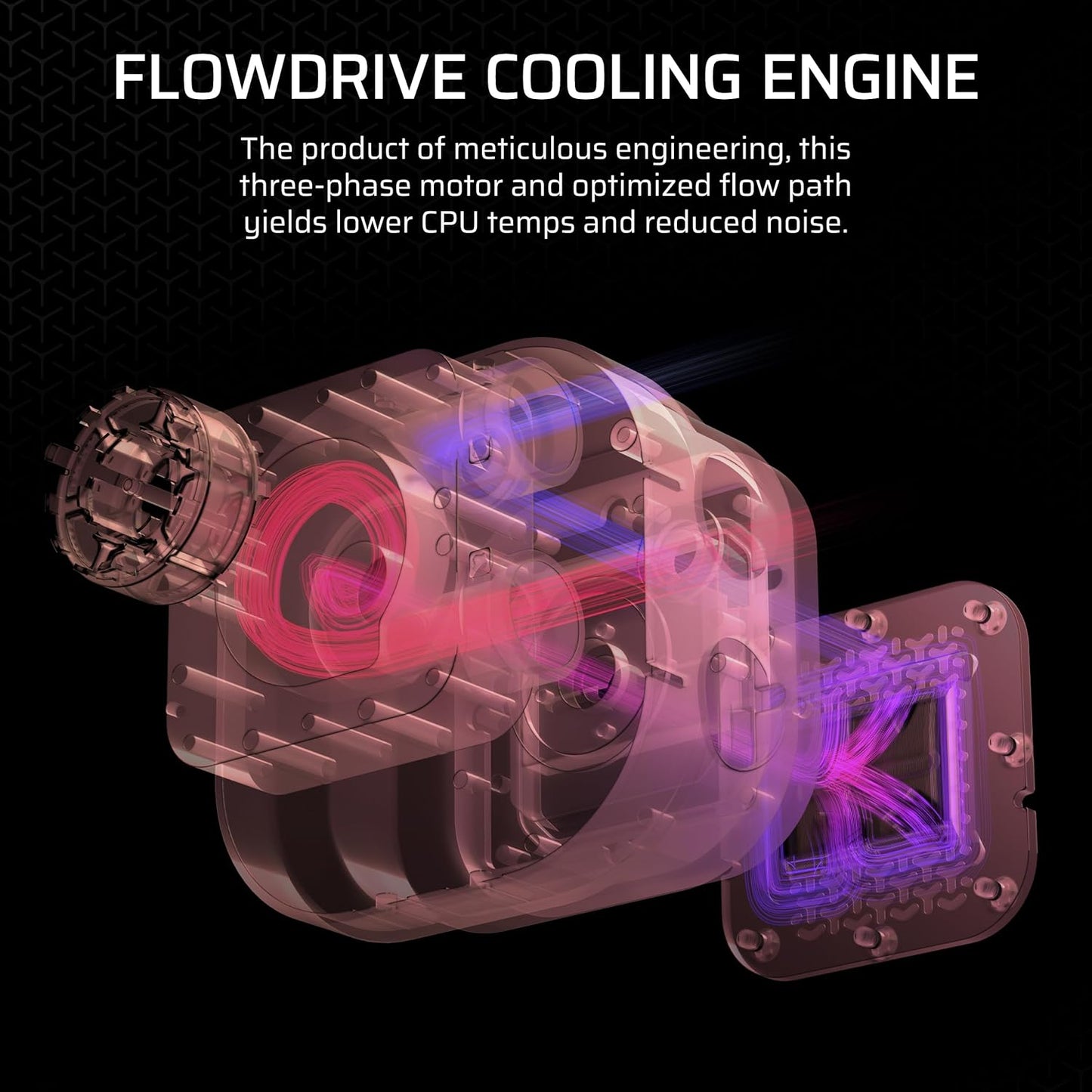

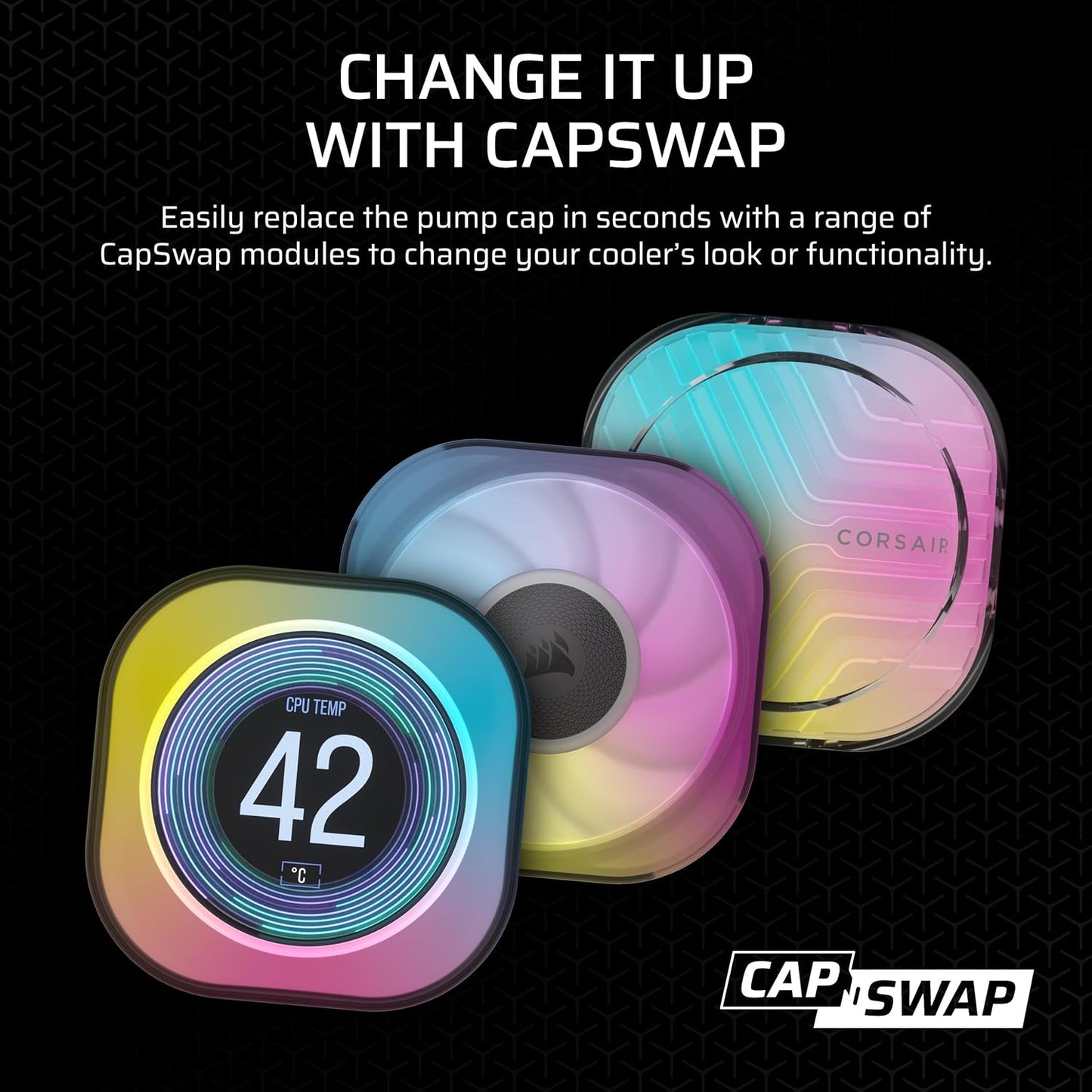
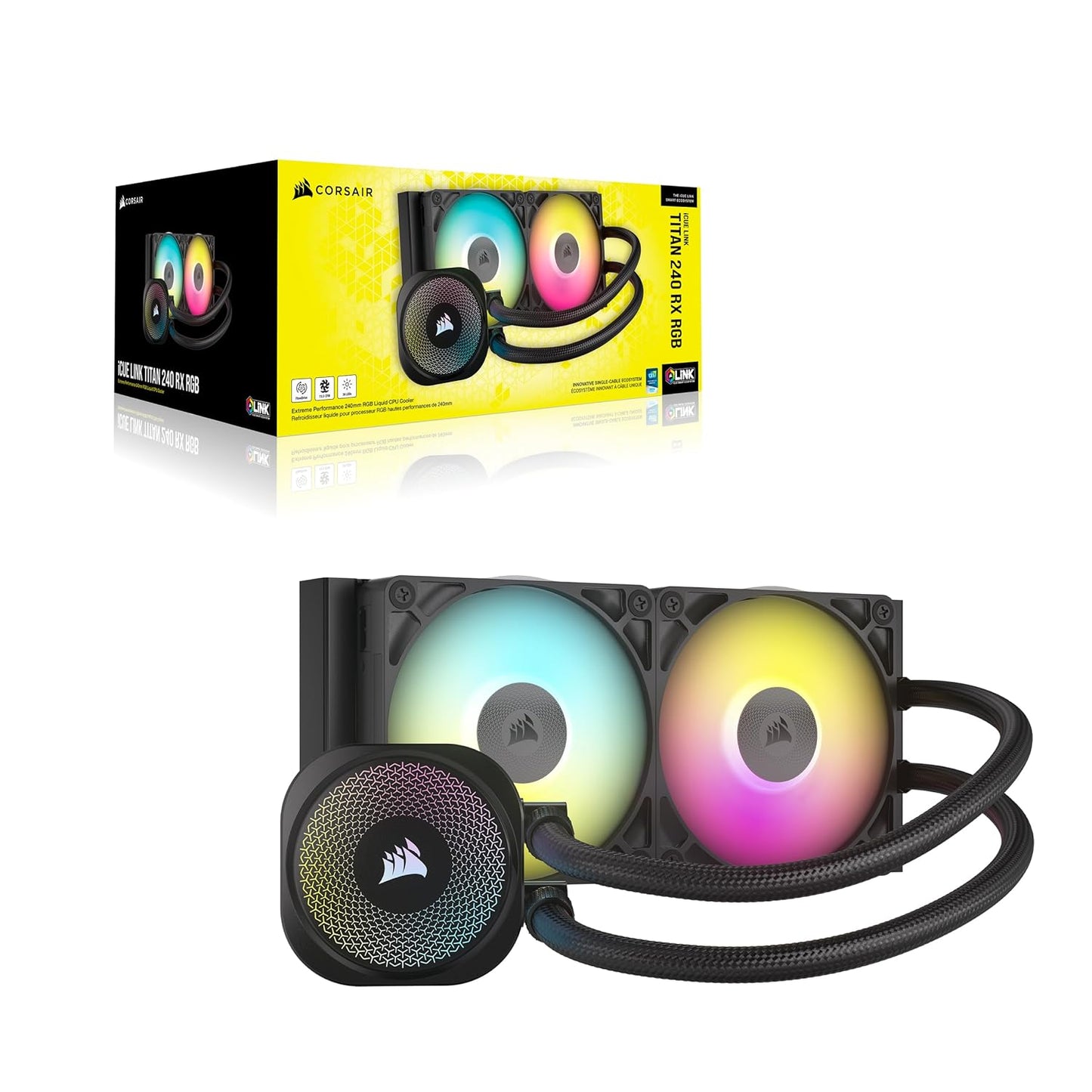
The POST-Check Protocol
-
Socket & Size Check
Action: Always confirm the cooler's mounting kit supports your CPU socket (e.g., LGA 1700, AM5) and measure your case to ensure the air heatsink or AIO radiator physically fits the available space. Why: Mismatched parts or oversized coolers (Air/AIO) will prevent proper installation or interfere with RAM slots.
-
Cold Plate Safety
Action: Crucial Before placing the cooler on the CPU, confirm you have removed the protective plastic film from the cold plate, even if thermal paste is pre-applied. Why: Forgetting the film will cause a failure to transfer heat, leading to immediate CPU overheating and shutdown.
-
Thermal Application
Action: If applying your own paste, use a pea-sized blob in the center of the CPU and let the cooler's pressure spread it. Why: This method ensures optimal, even coverage to fill microscopic gaps without using too much paste, which can decrease cooling efficiency.
-
Fan Orientation
Action: Set up all fans (both on the heatsink and the AIO radiator) to follow a logical airflow path (e.g., intake from front/bottom, exhaust out the top/rear). Why: Correct orientation prevents fans from working against each other and moves hot air out of the case efficiently.
-
AIO Pump Position
Action: For AIO liquid coolers, the radiator must be mounted higher than the pump/CPU block, with the tubes running to the bottom of a front-mounted radiator (if possible). Why: This ensures any air in the loop is trapped safely in the radiator, preventing it from entering and damaging the pump, which causes noise and reduces pump lifespan.

